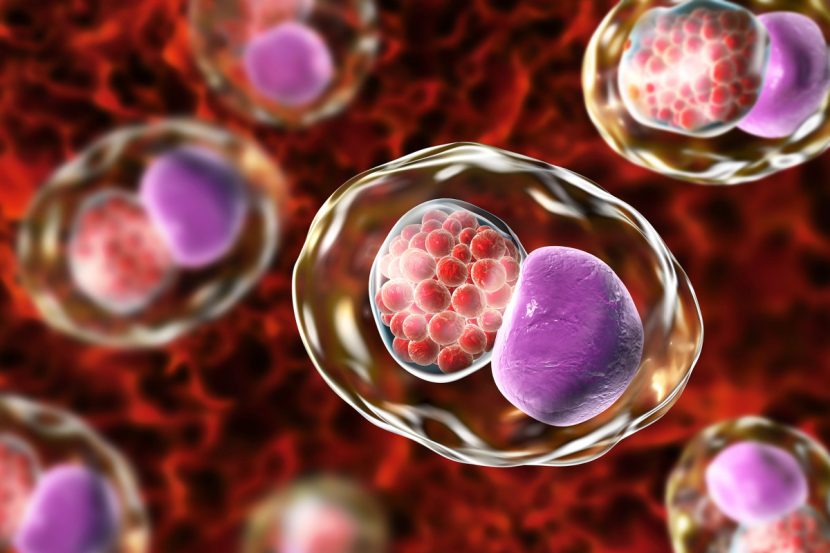
Infection by chlamydia is one of the most common, Both men and women. In the event that you are pregnant and have doubts about whether or not you have this infection, consult your doctor immediately, since the infection can be passed to the baby during delivery. For this reason it is essential that you get treatment.
Another consequence of having or having had chlamydia is that the pregnancy could be ectopic, that is, outside the womb. If you want to have more information about ectopic pregnancies, we recommend that you click on this article.
What is chlamydia infection and how does it affect me?

Chlamydia is a bacterial infection that can be cured. It is transmitted through genital, oral, or anal sex. It is not necessary that there has been ejaculation for contagion to occur.
In most cases, there are no clear symptoms, and sometimes appear several weeks after having had sex. Women usually have abnormal vaginal discharge and a burning sensation when urinating, but this does not mean that if you have these symptoms you are infected. There are other causes that can also cause them. To be sure, ask for a Insights to your doctor.
Chlamydia infection, if left untreated and persists for a long time it can damage the reproductive system. In the most severe cases, it makes it more difficult or impossible for you to get pregnant in the future.
One thing you should know is that if you have already had chlamydia and received treatment in the past, this does not make you immune to being infected again. frequent recurrence of infection chlamydia. Tests should be done about three months after treatment.
I am pregnant, how do chlamydia affect me? What about my baby?

In your first prenatal visit The doctor should have ordered a complete STD (Sexually Transmitted Diseases) test to rule out chlamydia or other infection. If not, request it.
Women with chlamydia during pregnancy tend to have higher levels of infection in the sac and amniotic fluid. They also increase the probability of a premature birth and premature rupture of membranes. Some studies have associated chlamydia with the risk of miscarriage, but this relationship is unclear.
The most serious thing is that pass your chlamydia infection to your baby during childbirth, which could lead to an eye infection, conjunctivitis, between 18-44% of cases. Sometimes a few days after birth, medicated drops or creams are given to babies that prevent gonorrhea conjunctivitis, but not chlamydial infections. Babies who get chlamydia during delivery are more likely to develop pneumonia, between a few weeks and a few months after birth. Chlamydial pneumonia in 3-16% of cases.
For the mother, after childbirth, you will have a greater chance of suffering a uterine infection. These infections can be very serious, but if you treat your baby right away with antibiotics, he will not have any problems. Although of course, it is best to be treated during pregnancy.
Can infection be treated during pregnancy?

Chlamydia can be cured, for this they are administered antibiotics that are safe During pregnancy. The specialist will prescribe an antibiotic to take in a single dose or one you take for a week. Azithromycin, amoxicillin, and erythromycin are considered to be safe medications to treat this infection in pregnant or breastfeeding women, and you should strictly follow your doctor's instructions.
In the event that you have a partner, it is important that this one also get treatment. You should refrain from having sex for up to a week after you have both finished treatment. Medicines for chlamydia infection should not be shared.
Your doctor will do the analysis again at 3 weeks and then 3 months after finishing the treatment. Reinfection is common.